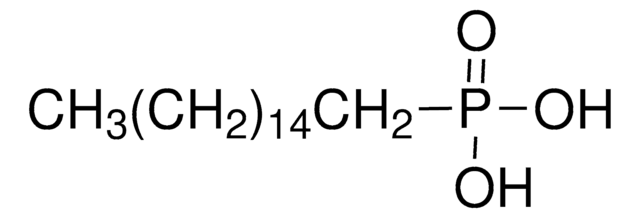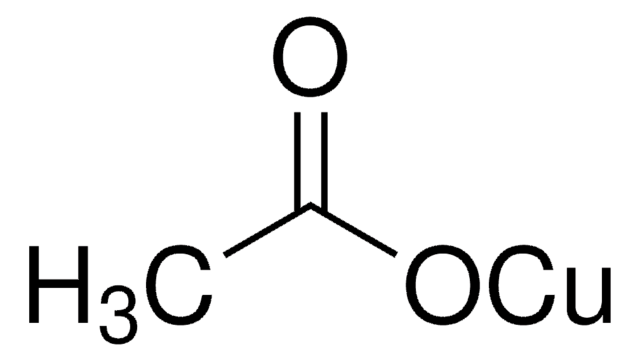736414
Tetradecylphosphonic acid
98%
Synonyme(s) :
TDPA, TPA
About This Item
Produits recommandés
Niveau de qualité
Pureté
98%
Forme
solid
Pf
80-85 °C
Température de stockage
2-8°C
Chaîne SMILES
CCCCCCCCCCCCCCP(O)(O)=O
InChI
1S/C14H31O3P/c1-2-3-4-5-6-7-8-9-10-11-12-13-14-18(15,16)17/h2-14H2,1H3,(H2,15,16,17)
Clé InChI
BVQJQTMSTANITJ-UHFFFAOYSA-N
Vous recherchez des produits similaires ? Visite Guide de comparaison des produits
Catégories apparentées
Description générale
Application
Code de la classe de stockage
11 - Combustible Solids
Classe de danger pour l'eau (WGK)
WGK 2
Point d'éclair (°F)
Not applicable
Point d'éclair (°C)
Not applicable
Faites votre choix parmi les versions les plus récentes :
Déjà en possession de ce produit ?
Retrouvez la documentation relative aux produits que vous avez récemment achetés dans la Bibliothèque de documents.
Les clients ont également consulté
Articles
There is widespread demand for thin, lightweight, and flexible electronic devices such as displays, sensors, actuators, and radio-frequency identification tags (RFIDs). Flexibility is necessary for scalability, portability, and mechanical robustness.
Self-assembled monolayers (SAMs) have attracted enormous interest for a wide variety of applications in micro- and nano-technology. In this article, we compare the benefits of three different classes of SAM systems (alkylthiolates on gold.
Notre équipe de scientifiques dispose d'une expérience dans tous les secteurs de la recherche, notamment en sciences de la vie, science des matériaux, synthèse chimique, chromatographie, analyse et dans de nombreux autres domaines..
Contacter notre Service technique











